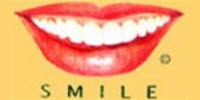Call (925) 820-6623
How Pregnancy Affects Your Dental Care
Thinking about your baby and prenatal care is normal during pregnancy; however, thinking about your oral health and dental care may not be forefront on your mind, but dentistry is still very important. Women need to pay special attention to their teeth and gums especially during pregnancy to avoid the increased risk of dental problems.
Your Changing Body and Changing Dental Care Needs During Pregnancy.
Pregnancy brings a change in oral health and hormones, especially increased levels of estrogen and progesterone, which are linked to plaque buildup on teeth. Plaque that is not removed can cause gingivitis and swollen gums that are tender and prone to bleed. Most pregnant women experience gingivitis to some degree, but it doesn't usually surface until the second trimester.
If you had gingivitis before becoming pregnant, your condition will likely be aggravated; untreated gingivitis can lead to a more serious problem -- periodontal disease. Swollen gums that become irritated can also lead to pregnancy tumors, benign growths that will usually shrink and disappear without treatment. However, if the tumor causes discomfort or interferes with chewing or brushing, the dentist may suggest removing it.
Special Preventive Dental Care Tips for Pregnant Women
- Brush at least twice a day with fluoride toothpaste and after each meal, if possible.
- If brushing your teeth causes morning sickness, rinse with anti-plaque and fluoride mouthwashes or water.
- Pay close attention to your gum line and keep it clean.
- Floss daily.
- Focus on nutrition, including plenty of vitamins C and B12.
- Visit your dentist for a check-up and cleaning in both your first and second trimesters to control plaque and maintain good oral health.
Handling Dental Care Emergencies During Pregnancy
If you experience dental emergencies causing pain, you can be treated at any time; however, consult your doctor if anesthesia is required or a medication is prescribed to you. Avoid X-rays during pregnancy, unless they are critical to emergency treatment.
It is recommended to schedule elective procedures after your baby's birth. While you're expecting, have great expectations for maintaining good oral health. By doing so, you'll keep your beautiful smile and share it with your baby!
By Brian J. Gray, DDS, MAGD, FICO
Call for an appointment:
(925) 820-6623
Make an Appointment
Don't Forget to Floss!
Clean between teeth daily with floss or an interdental cleaner. Decay-causing bacteria can hid between teeth where toothbrush bristles can't reach. Flossing helps remove plaque and food particles from between teeth and under the gum line.
Visit Our Office Regularly!
Take good care of your smile. Remember to visit the dentist regularly for professional cleanings and oral exams.
Mouthwash Is Important, Too!
Brushing and flossing may not be enough. The ADA now recommends using an antimicrobial mouthwash to reduce plaque and prevent gingivitis.




